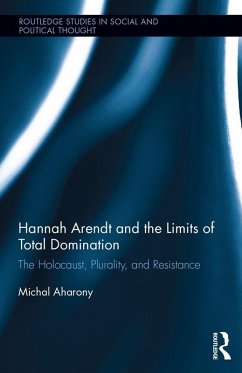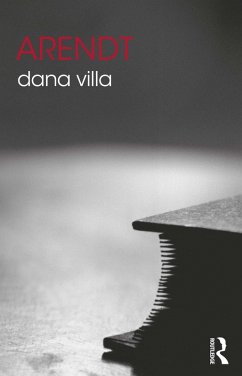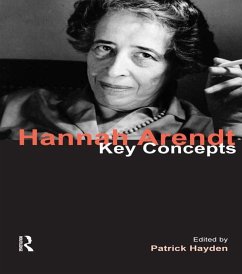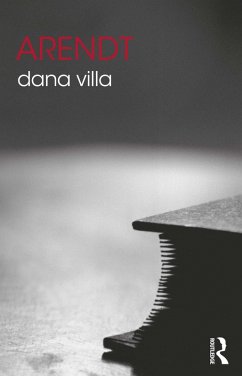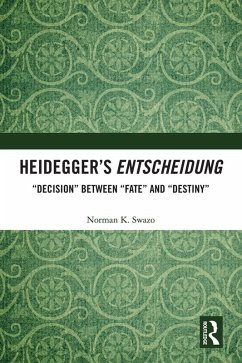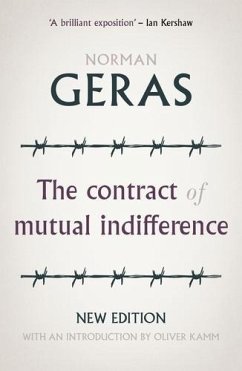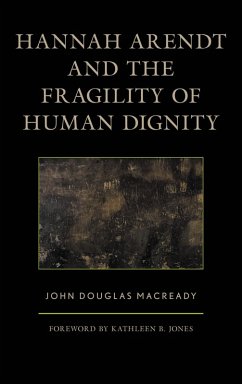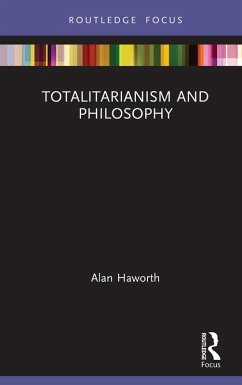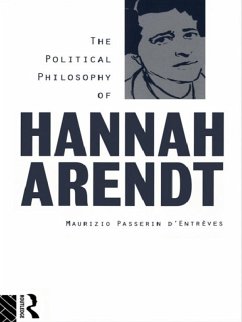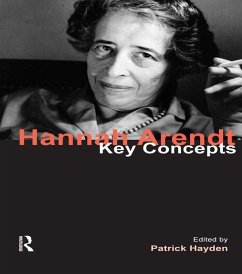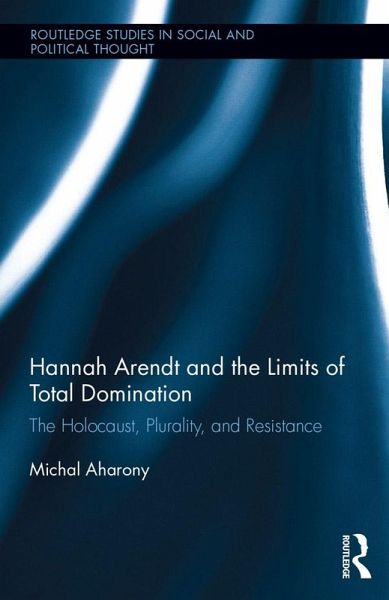
Hannah Arendt and the Limits of Total Domination (eBook, ePUB)
The Holocaust, Plurality, and Resistance
Versandkostenfrei!
Sofort per Download lieferbar
43,95 €
inkl. MwSt.
Weitere Ausgaben:

PAYBACK Punkte
22 °P sammeln!
Responding to the increasingly influential role of Hannah Arendt's political philosophy in recent years, Hannah Arendt and the Limits of Total Domination: The Holocaust, Plurality, and Resistance, critically engages with Arendt's understanding of totalitarianism. According to Arendt, the main goal of totalitarianism was total domination; namely, the virtual eradication of human legality, morality, individuality, and plurality. This attempt, in her view, was most fully realized in the concentration camps, which served as the major "laboratories" for the regime. While Arendt focused on the perpe...
Responding to the increasingly influential role of Hannah Arendt's political philosophy in recent years, Hannah Arendt and the Limits of Total Domination: The Holocaust, Plurality, and Resistance, critically engages with Arendt's understanding of totalitarianism. According to Arendt, the main goal of totalitarianism was total domination; namely, the virtual eradication of human legality, morality, individuality, and plurality. This attempt, in her view, was most fully realized in the concentration camps, which served as the major "laboratories" for the regime. While Arendt focused on the perpetrators' logic and drive, Michal Aharony examines the perspectives and experiences of the victims and their ability to resist such an experiment.
The first book-length study to juxtapose Arendt's concept of total domination with actual testimonies of Holocaust survivors, this book calls for methodological pluralism and the integration of the voices and narratives of the actors in the construction of political concepts and theoretical systems. To achieve this, Aharony engages with both well-known and non-canonical intellectuals and writers who survived Auschwitz and Buchenwald concentration camps. Additionally, she analyzes the oral testimonies of survivors who are largely unknown, drawing from interviews conducted in Israel and in the U.S., as well as from videotaped interviews from archives around the world.
Revealing various manifestations of unarmed resistance in the camps, this study demonstrates the persistence of morality and free agency even under the most extreme and de-humanizing conditions, while cautiously suggesting that absolute domination is never as absolute as it claims or wishes to be. Scholars of political philosophy, political science, history, and Holocaust studies will find this an original and compelling book.
The first book-length study to juxtapose Arendt's concept of total domination with actual testimonies of Holocaust survivors, this book calls for methodological pluralism and the integration of the voices and narratives of the actors in the construction of political concepts and theoretical systems. To achieve this, Aharony engages with both well-known and non-canonical intellectuals and writers who survived Auschwitz and Buchenwald concentration camps. Additionally, she analyzes the oral testimonies of survivors who are largely unknown, drawing from interviews conducted in Israel and in the U.S., as well as from videotaped interviews from archives around the world.
Revealing various manifestations of unarmed resistance in the camps, this study demonstrates the persistence of morality and free agency even under the most extreme and de-humanizing conditions, while cautiously suggesting that absolute domination is never as absolute as it claims or wishes to be. Scholars of political philosophy, political science, history, and Holocaust studies will find this an original and compelling book.
Dieser Download kann aus rechtlichen Gründen nur mit Rechnungsadresse in A, B, BG, CY, CZ, D, DK, EW, E, FIN, F, GR, HR, H, IRL, I, LT, L, LR, M, NL, PL, P, R, S, SLO, SK ausgeliefert werden.




